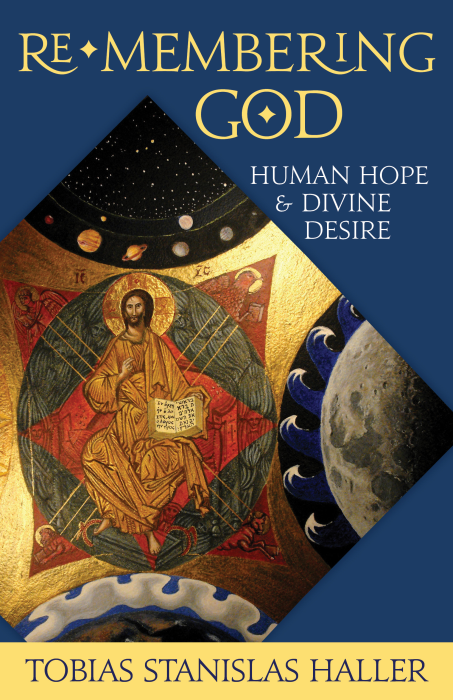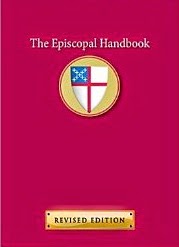Something Borrowed, Something New

A review of Ancient Faith, Future Mission, edited by Steven Croft, Ian Mobsby & Stephanie Spellers. Seabury Books 2010. (The Episcopal New Yorker, Summer 2010).
Just about 200 years ago, Presiding Bishop William White recorded his thoughts about enlivening the worship of the Episcopal Church with additional hymns:
As to the loading of our book with the same truths in a diversity of language and of metre, or, in any other way, the seeking of variety for its own sake, there is pleasure in recording the opinion, that it will never tend to the sustaining either of truth or of devotion. (Memoirs, the Convention of 1808)
There is nothing new about the search for novelty, or of such cautious warnings not so far to expand the edges as to lose touch with the center. In our present day, the urge to expansion and experimentation has been fueled and energized by “The Emergent Church.” The present collection of essays provides a helpful overview this exploration, as well as providing cautions of its own.
The voices in these 16 essays, introduced by our present Presiding Bishop, range from the scholarly to the pragmatic; from the Archbishop of Canterbury to leaders of emergent congregations. The editors, in a brief foreword, indicate that each contribution was made without reference to the others; so there is considerable repetition of primary themes as well as occasional disagreement. However, the dissonances tend to resolve harmoniously, and converge upon a basic drive for mission.
Echoing William White, this movement is not about variety for its own sake; nor is it a formulaic solution to the problems of decline. This is not merely about new vestments, rearranging the furniture, coopting some ancient tradition (whether Gregorian chant or the labyrinth), or adopting the latest thing in electro-pop. Nor is this a game of children dressing up in their grandparents’ clothes, but a call to deep engagement with what is emerging — to borrow Thomas Brackett’s phrase, “midwifing the movement of the Spirit.” In her contribution to the collection, Phyllis Tickle suggests that the present Great Emergence is the next wave in the 500-year cycle of seismic changes that have rippled through the Church. Something new is coming — and the present Church is both mother and midwife to the change, both subject and object. We are all part of this process, whether we know it or not.
It is no surprise that most of the essays in this collection deal with liturgy. Anglicans have long understood their faith to be constituted in their worship. It is therefore welcome to find several reminders — drawing on such luminaries as Frank Weston — that worship without mission is precious at best and scandalous at worst. It is heartening to see that a number of the emergent experiences in these pages are based on outreach to people living on the fringes of society — and to see cathedral churches revivified and renewed by taking such human treasures seriously, and embracing them.
The quality of the essays is variable, and as already noted there is a good bit of repetition. But each of them offers a thoughtful suggestion or correction to take to heart, as the whole Church engages with its ministry of bringing its own new self into being.
Tobias Stanislas Haller BSG








4 comments:
Thanks for this. I'll have to go and read. Teaching a small seminar this semester doing emergent worship and giving tools to evaluate critically.
Bishop White's opposition was not to "additional hymns", but to ANY HYMNS AT ALL in the Holy Communion. He was smarting from the huge ecclesiastical damage of the Great Awakening, and believed that including hymns in the service was only a way to sneak in undesirable "emotional" elements.
He was defeated, and hymns were added and published at the back of the BCP -- and the Church has been cow-towing to emotional jags for the congregation ever since.
Imagine: the Christian Church celebrated the Holy Eucharist validly for over 1700 years without a single hymn being sung in that liturgy! Ah, what glory days were those!
Sorry to take a tangent off your theme (with which I heartily agree), but I couldn't miss the chance.
Um, luv ya Fr J-J, BUT... O_o
[JCF, who believes that ANY Eucharist can be improved by "Let All Mortal Flesh Keep Silent". :-)]
Book sounds interesting---
Christopher, thanks. Well worth a read.
Fr. J., this is indeed part of the old rational/emotional pendulum. Personally I think the engagement of the whole self will require different strokes for different folks, and try to balance liturgical planning to offer everyone present at least something to lift the heart or engage the mind. It seems to me that pure emotionalism and pure rationalism both miss something.
JCF, check it out... it is well balanced.
Post a Comment